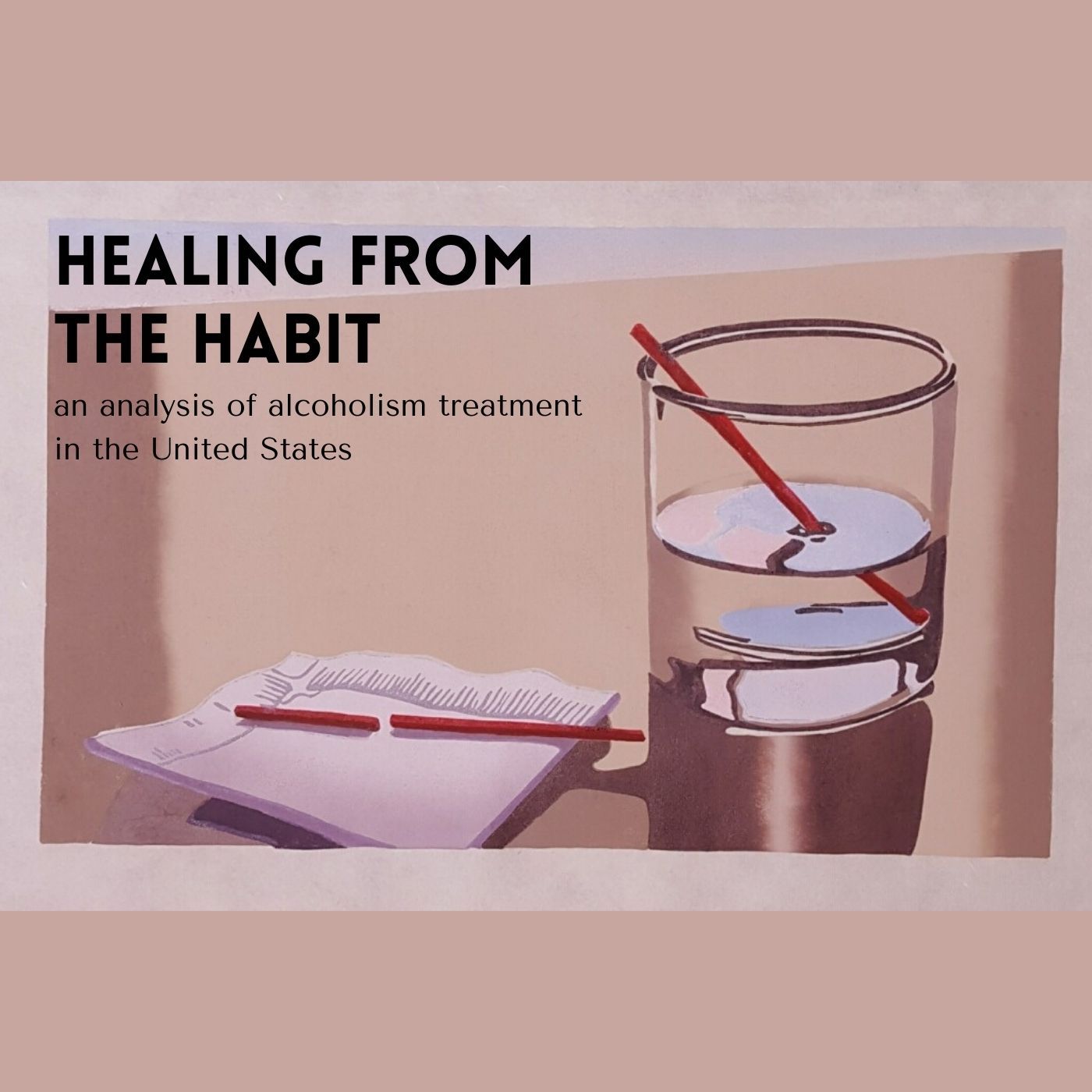Healing from the Habit, an analysis of alcoholism treatment in the United States

By: Artin Allahverdian, Erin Kim, Kate Manganaro, Meredith Steinberg
From hitting the bottle to quitting it, the popularity of Alcoholics Anonymous as a road to recovery from alcoholism is stark, but does it work for everyone?
Although alcoholism is one of the most common substance abuse disorders in the United States today, many avenues of treatment remain unexplored. In the present, the most popular avenue to recovery is through Alcoholics Anonymous (AA). The program’s 12-steps require abstinence, accepting powerlessness, and prayer as the only means to succeed. Upon its foundation in 1935, AA was the first group to address alcoholism treatment. AA membership has grown and, utilizing sociological and psychological concepts, it has proven to be a sufficient program for many, but not for all. The faith-based aspect of the 12-steps can serve as a deterrent for those that, for various reasons, do not associate themselves with religion or spirituality. This leads to more nuance as AA and other 12-step programs are frequently used within the carceral and criminal justice systems as a means of sentencing. Other treatments, such as pharmacotherapy and psychotherapy have proven to be at least equally as effective as AA. These options explore different, personalized routes focused on the individual seeking treatment. Despite this, AA remains the program of choice. Why is this the case? Most probable, it is largely due to how society perceives alcoholics, conceptualizes alcoholism as a habit, and views the success of the 12-step program. In addition to this, the financial burden of other options make them widely inaccessible to populations that need them most. To address this, numerous inclusive and accessible program options must be studied and implemented across the United States, creating more equitable and realistic routes to recovery for a variety of cases, rather than one, singular “all or nothing” option.
This is a fantastic, complicated and engaging exploration of the science of addiction, the history and culture of treatment, rehab, and AA… really great work! – Prof. Kelty
comments powered by Disqus